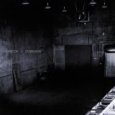Murcof, "Cosmos"
 Fernando Corona is back with another Murcof record, and this time he's tackling nothing less than the entire cosmos. In terms of creative process, Murcof leans further away from his previous micro-programmed pieces with Cosmos, and relies more on sounds derived almost entirely from recordings of classical instruments. He has not, however, abandoned the idiosyncratic precision or faith in structure that have served him so well.
Fernando Corona is back with another Murcof record, and this time he's tackling nothing less than the entire cosmos. In terms of creative process, Murcof leans further away from his previous micro-programmed pieces with Cosmos, and relies more on sounds derived almost entirely from recordings of classical instruments. He has not, however, abandoned the idiosyncratic precision or faith in structure that have served him so well.
Leaf
Both "Cielo" and "Cometa" recall the blip-vertiginous swinging rhythms of earlier Murcof tracks like "Memoria" and show just how little is needed to get down with one's bad molecules. If the progressive music show from BBC2, Old Grey Whistle Test, were to be reborn in the year 2525, either piece would be perfect for the opening credits (where the stars took human form and jigged around). Murcof's work usually adheres to an increasing pleasure per play ratio so I fully expect to like Cosmos more than I currently do. For now, though, when listening to some sections of this record, I felt as simultaneously impressed and unengaged as when I went to the rim of the Grand Canyon. Gazing down and wondering when I would be able to articulate my feelings, before realizing that either the ones I briefly held had dissipated like dust in the wind, or that I didn't really have any. (In the end, "Wow, it's really big" is not saying much.)
The pieces "Cosmos I" and "Cosmos II" (which I like to call "Max Richter v. Blade Runner") are appropriately huge, dense edifices. They remind me of spectacular giant glass skyscrapers: places you can admire without wanting to live in (or opposite). Of course, we all do live in the cosmos, it's pretty great, and maybe this recording will make more sense when heard in the planetarium gigs that are mooted. I hope so, because on headphones and in the car, Murcof's portrayal of the cosmos seems pretty uninviting.
By the end of the album I felt as removed from the action as the Squire's under-gardener Percy Cullerne from Adam Thorpe's miraculous novel Ulverton. At the outbreak of the First World War, despite 32 other young men of Ulverton accepting the Squire's bidding to join up and fight, Cullerne declines, simply stating that he would "rather bide at home." The Squire is absolutely livid, Cullurne becomes an outsider (mocked and avoided) but slowly and surely the death notices arrive. In 1923, overcome by guilt, the Squire kills himself. There's no reason for Murcof to be anything other than proud of his work, but, while Cosmos is undeniably impressive, for now I'll "bide at home," thanks.
samples:



